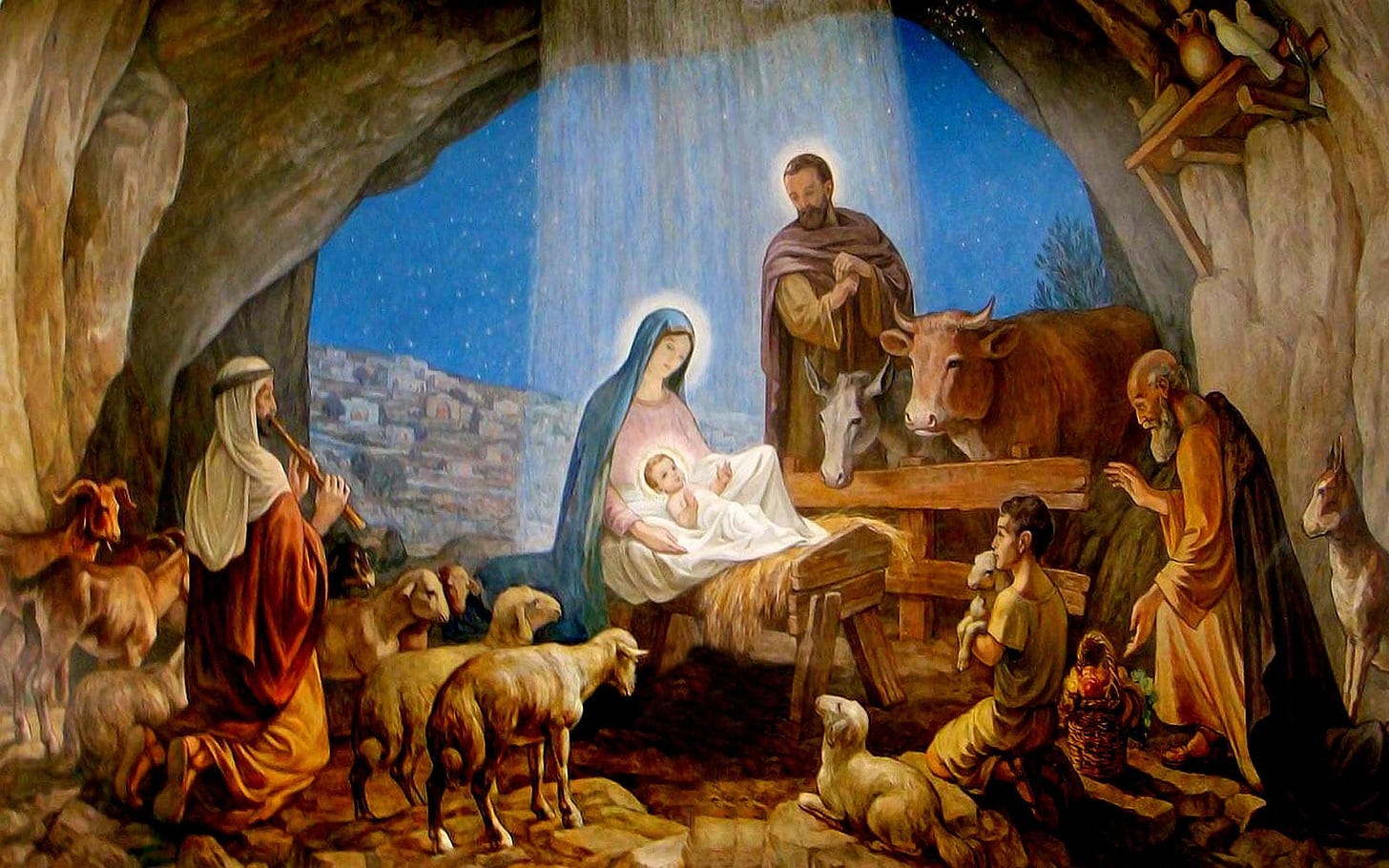Today is Christmas Day. It is when we celebrate the birth of Jesus Christ. It is made up of two words, Christ (relating to Jesus) and Mass, which is the name for a religious feast.
Most people think that Christmas was originally a pagan festival and Christians stole it and made it their own. This view is so pervasive, that even the Jehovah Witness do not celebrate it, due to its alleged pagan roots.
Most commentators relate Christmas Day to the Sol Invictus (Unconquered Sun) celebrations. The main problem with arguing that Christmas derived from this festival, is that we don’t have a recorded date for this until AD354. This was years after the first mention of Christmas in the historic record. Hippolytus of Rome mentioned 25th December as a date for Christmas in his commentary on the Book of Daniel, written around AD204.
So it could be possible that a Roman pagan ruler established it on 25th December to coincide with Christmas Day, to compete with Christianity. The earliest possible date for this is AD274, when Emperor Aurelian dedicated a temple to the Sun.
Another theory is it replaced Saturnalia. This was a festival where all the rules were effectively thrown out and anything went. The issue is that Saturnalia was celebrated in mid-December and would last between three to seven days.
The truth is, we don’t know. Though the evidence likely suggests Christmas wasn’t originally pagan.
Christians did build churches on sacred sites, but we tend to forget that the people who did these were original those pagans who had previously worshipped at that site.
This still doesn’t explain why 25th December would be the date of the celebration of Christ’s birth. After all, it is likely He was born in September or October.
Firstly, we need to realise that Christmas Day is not the literal date Jesus was born, but the date Christians celebrate it.
In the early Church, the day a martyred saint died was the day they celebrated their whole life, from conception to death.
So if Christ was born in 3BC and died when He was 33 years old, then he would have been crucified on 25th March AD30 (the date of the Passover that year).
So the Christians would have treated the 25th March as not only His date of death, but also conception. And therefore, counting 9 months from March, we get to 25th December.
Whatever the truth is, instead of saying that Christmas is originally pagan and dismissing it, we should do what Christians have done forever and reclaim pagan cultures for Christ. Celebrating and preserving the good parts and stopping the evil traditions.
Have a great Christmas, and I will see you tomorrow, where I will discuss St Stephen.





Blessed Feast to you and yours!
https://substack.com/@stevenberger/note/c-81247768?r=1nm0v2
Thank you for sharing this!
Back in 221 AD Julius Africanus has proposed that Jesus was conceived on 25th of March. It would then follow that his birth would be 9 months later, falling on 25th of December. So it is possible that his ideas have laid the foundation for accepting 25 December as Jesus’ birth date. If that’s the case I guess it would be mainly for symbolic / theological reasons as apparently according to the Jewish tradition 25 March was the date of the creation of the world. Interestingly this is also believed to be the date of the crucifixion